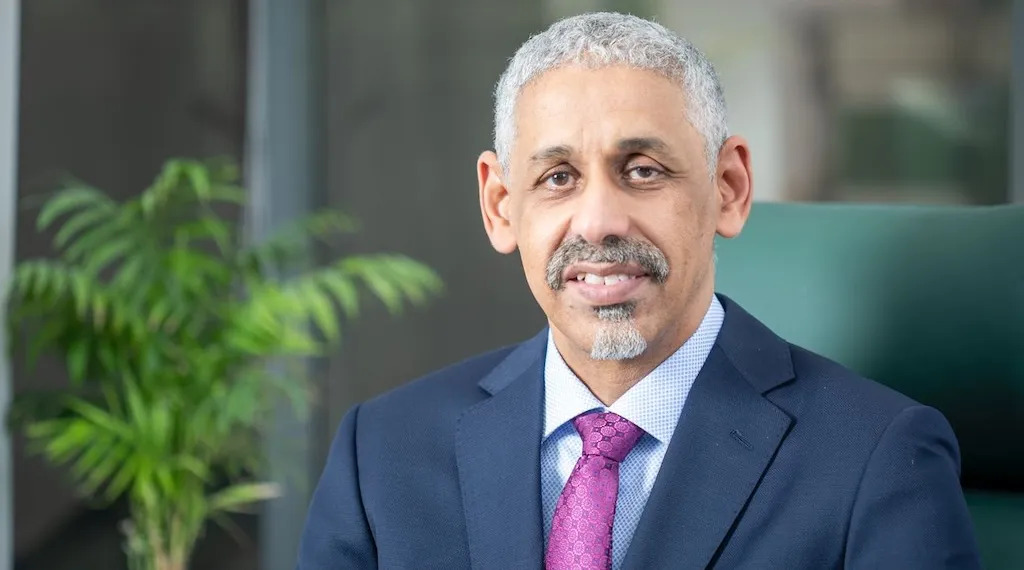The African Development Bank Group (AfDB) has elected Sidi Ould Tah, a Mauritanian economist and development banker, as its president. Tah will lead Africa’s leading multilateral lender during a period of increasing unpredictability in global economic governance.
The announcement, which was made Thursday at the Bank’s Annual Meetings in Abidjan, Côte d’Ivoire, lays the groundwork for the new leadership as the organisation struggles with slowing global growth, growing debt distress throughout the continent, and shifting Western development partners’ stances, most notably a resurgent Trump administration whose historical mistrust of multilateral institutions still looms large.
Nigeria’s Akinwumi Adesina will step down after a transformative but occasionally tumultuous two terms at the Bank’s helm, and Tah will take over on September 1, 2025, for a five-year term.
Sidi Ould Tah’s portfolio
Tah, the long-time president of the Arab Bank for Economic Development in Africa (BADEA) and a former Minister of Economic Affairs and Finance of Mauritania, won the presidency after a close race of five contenders. After obtaining the necessary double majority—more than 50.01 percent of both African (regional) and non-African (non-regional) shareholder votes—Niale Kaba, the Minister of Planning and Development of Côte d’Ivoire and the Chair of the AfDB Board of Governors, confirmed his election.
In order to support African multilateral development banks, the new president oversaw a comprehensive institutional reform that quadrupled the bank’s balance sheet, gave it a AAA credit rating, and created a callable capital facility worth $1 billion USD. Many shareholders felt that his record shifted the balance in his favour.
Challenging task for Sidi Ould Tah
The election of Tah comes right after Donald Trump’s shocking return to the White House, which raises new concerns about how the United States will continue to support multilateral development organisations. During his first term, Trump frequently questioned America’s funding commitments to organisations like the World Bank and the United Nations. The United States continued to be a major shareholder in the AfDB, but it mostly ignored African development issues.
As the continent deals with increasing fiscal strain, increased climate vulnerability, and a pressing need to unlock private capital, the AfDB is now preparing for another possible period of disengagement from Washington. Consequently, analysts anticipate that Tah will shift its focus to alternative funding sources, such as intra-African financial mechanisms, Asian development institutions, and Gulf sovereign funds.
Many stakeholders are calling for an institutional reset as the AfDB approaches its seventh decade of existence, which coincides with Tah’s appointment. The bank is still criticised for its limited leverage of private investment, excessive bureaucracy, and delays in disbursements, despite the fact that it has greatly expanded its capital base and operational footprint in recent years.
Arms of African Development Bank
The Nigeria Trust Fund, the African Development Bank, and the African Development Fund (ADF) are the three divisions of the African Development Bank Group. Although it is the most powerful financial institution on the continent with a combined subscribed capital of over 208 billion US dollars, its relevance will increasingly be determined by its agility rather than its size.
The Bank’s strategic core remains its recent thematic focus, which is summed up under its “High Five” agenda: electrification, food security, industrialisation, regional integration, and quality of life. However, Tah’s legacy will be determined by its capacity to fulfil that commitment, especially given its tight global financial situation.
Sidi Ould Tah’s opponents
Tah defeated four strong candidates to win the presidency: Bajabulile Swazi Tshabalala of South Africa, Samuel Maimbo of Zambia, Mahamat Abbas Tolli of Chad, and Amadou Hott of Senegal. Tah gained the support of most African and non-African shareholders, but each candidate contributed strong technical credentials and regional support.
Growing calls for a less divisive leadership style than his predecessor also helped his candidature. Former World Bank official and Nigerian agriculture minister Adesina brought charm and audacious ambition to the position, but accusations of poor management plagued him during his second term, which were eventually dropped following internal and external reviews.
















